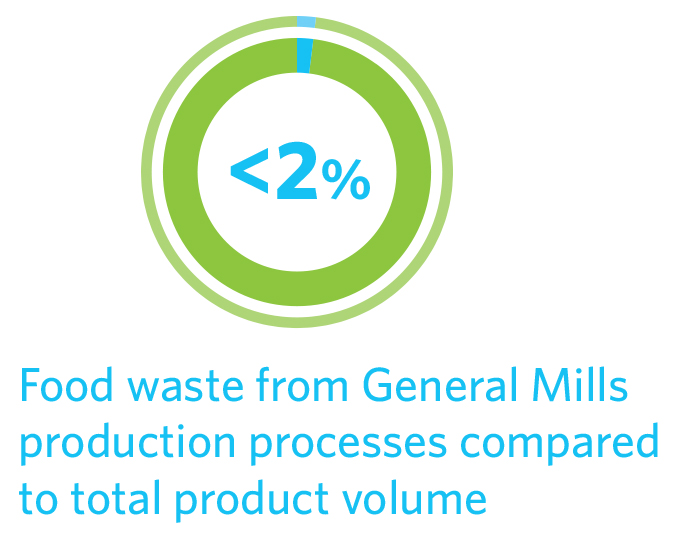Source: blog.generalmills.com
Published: November 21, 2016
By Jerry Lynch
You may have noticed that General Mills has been talking a lot about food waste lately. As a global food company, it’s imperative to take thoughtful action to combat food waste and we are committed to doing our part – socially, environmentally and financially.
The U.S. Department of Agriculture (USDA) recently conducted research that estimates the amount of food that went uneaten at the retail and consumer levels in the baseline year of 2010 represented 31 percent of the available food supply, about 133 billion pounds of food worth an estimated $161.6 billion.

We need to take action now.
We’re a member of the Food Waste Reduction Alliance, as we recently announced our support of legislation that would require a national standard for food date labeling, and have long set goals to reduce waste in our own operations.
In 2013, General Mills was one of the first members of the U.S. Food Waste and Loss Challenge, a program launched by the USDA and the Environmental Protection Agency (EPA).
We recently furthered our commitment by being named a Food Loss and Waste 2030 Champion by USDA and EPA. We are honored by the recognition and we fully support the USDA and EPA’s continued leadership efforts to escalate the importance of food waste reduction.
In the U.S. alone, the EPA estimates that more food reaches landfills and incinerators than any other single material in our everyday trash, about 21 percent of the waste stream. Keeping wholesome and nutritious food in our communities and out of landfills helps communities and the 42 million Americans living in food insecure households. Reducing food waste also impacts climate change as 20 percent of total U.S. methane emissions come from landfills.

We’ll continue to advance our role in helping reduce food insecurity, reduce the needless churn of the planet’s resources used to produce food that is then thrown away, and eliminating the cost from food that is ultimately wasted.
This new commitment recognizes that General Mills will do its part to reduce waste in our operations, cutting our total waste by 50 percent by 2030. This effort coincides with the goals we set in our 2016 Global Responsibility Report, establishing zero-waste-to-landfill targets at 30 percent of our production facilities by 2020, and 100 percent by 2025.
While the amount of food waste we generate represents less than 2 percent of our total product volume, we are striving for “zero loss.” To that end, we are currently engaged in an effort to focus on zero loss in our global production facilities and develop a more standardized process for waste reduction.
To do this, we’ll continue to work on process improvements, collaborate with our donation partners like Feeding America, and lead among our peers to advocate for policies that help reduce food waste.

We know that cutting food waste in half by 2030 is going to take a sustained commitment from everyone including food companies, restaurants, the government and consumers. And as a company, we recognize our obligation to do our part to make this goal a reality.
